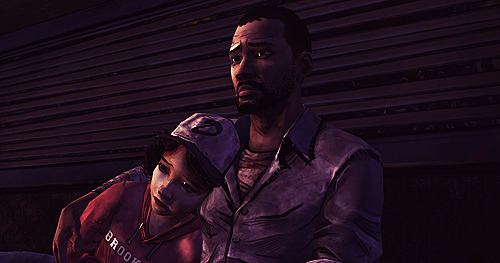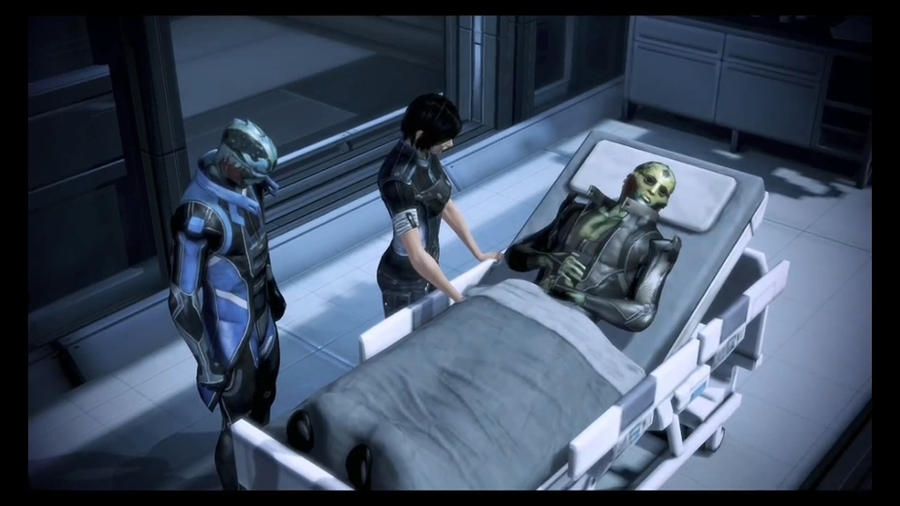 |
| Clementine and Lee from The Walking Dead game. |
Today saw the release of the fifth and final episode of The
Walking Dead video game, the end to a story that I loved and a goodbye to
characters that touched my heart in so many ways. For me today wasn’t about playing the game,
it was seeing what was going to happen to the people. I say people over characters because that is
what they had become to me over the last seven months of playing this
game. I had been with them through their
highs and lows, I’d been their when people were betrayed, when friendships were
forged, sacrifices were made and tragedy struck. This had become more than just a mere video
game, played for action or thrills, it had become a gripping, at times heart
wrenching drama about a group of very real people and their fight to stay alive
in a world gone to hell.
I know that there are a lot of people out their who aren’t
gamers, or who only play the occasional plat-former or beat-em-up and therefore
don’t ‘get’ video games. I think that
it’s a very real shame that these people don’t give video games a chance. You like films, you like books, you will like
video games, well, some of them anyway.
 | |||||
| Snake must fight and kill his mentor The Boss to complete his mission. |
Books will tend to have one of two formats to the writing,
third-person or first-person. The third-person,
the more common of the two styles, is written as if the characters are being
observed. For example, ‘Amy wrote about
video game storytelling on her blog’.
This can create a sense of distance between the reader and the
characters.
First-person perspective has the central character narrating
the story to you directly. For example, ‘today
I wrote about video game storytelling on my blog’. Whilst this does tend to draw you into the
story more, by putting you right their into the very mind of the central
character, having them tell you how events and over characters affect them, it
can leave you thinking that the character will never be in any real
danger. They’re alive to tell the tale
of what happened to them, possibly taking away any tension their might be in
the story.
Video game storytelling offers another choice, to put you
directly into the story, to make you a part of it and have your actions
matter. I’m not just talking about controlling
the character around an environment or fighting enemies, but choices that will
alter the plot around you. The Walking
Dead is a fine example of this type of story telling, as your actions will have
a dramatic effect on who will live, who will die and how other characters
interact with you. The wrong dialogue
choice in one of the early episodes can come back to haunt you in later ones as
the other characters can question your motives, or even hold a grudge against
you.
Mass Effect was another game series that adopted a
similar method to it’s story telling, allowing you to tailor the character of
Commander Shepard to your own style, from the gender and physical look down to
how much of an arse hole you want him/her to be. It will also remember what choices you made
during the first two games and you will find yourself either rewarded or
punished in the build up to the end battle based upon these choices you made,
choices that you may not have known would have such long lasting consequences
when you made them.
This freedom of choice and consequences to these choices
make the stories within these games extremely personal, and they have such a
greater impact when characters that you have spent, in some cases, dozens of
hours interacting with are in peril and at risk of dieing. Their were many times during Mass Effect 3
that I found myself in tears as people I’d fallen in love with were torn to
pieces ( in some cases literally) and each time a characters name was added to
the ships memorial wall my heart sank a little.
These are the kinds of reactions I find cannot be matched in
other mediums. Yes, books, comics, films
and tv can make us laugh and cry and rage, but there is always a sense of being
slightly removed from the experience.
Video games force you to physically take part in what is unfolding
before you. Even in games like Metal
Gear Solid, where there are little to no choices presented to players and you
have a very structured experience with no chance to go off and do your own
thing you are given so much story and character development that it would be
difficult to adapt the stories to written format, and an insane undertaking to
translate them into film.
 |
| Death is more than just 'Game Over' in video games. |
Those people who aren’t completely sold on video games as a
storytelling medium, I ask of you please do not ignore it. There are some truly amazing stories out
their that simply can’t be found in other medium, stories that are so amazing
and engaging that they simply must be played.
Video games are more than simple escapism, than shooting hordes of
generic villains or running from one side of the screen to the other. They are a real and adult form of
storytelling, one that deserves more respect than it receives.
Amy.
xx
Amy Walker Facebook
Trans Girl Writer Facebook Fan Page
Amy Walker Twitter
I'm amazed you got through an entire blog post about how good video games can be as a storytelling medium without mentioning Heavy Rain.
ReplyDeleteI couldn't have done it!
Heavy Rain IS a amazing game, and another example of great storytelling. Heavy Rain and MGS4 are the reasons I bought a PS3, just to be able to replay those amazing stories!
ReplyDelete